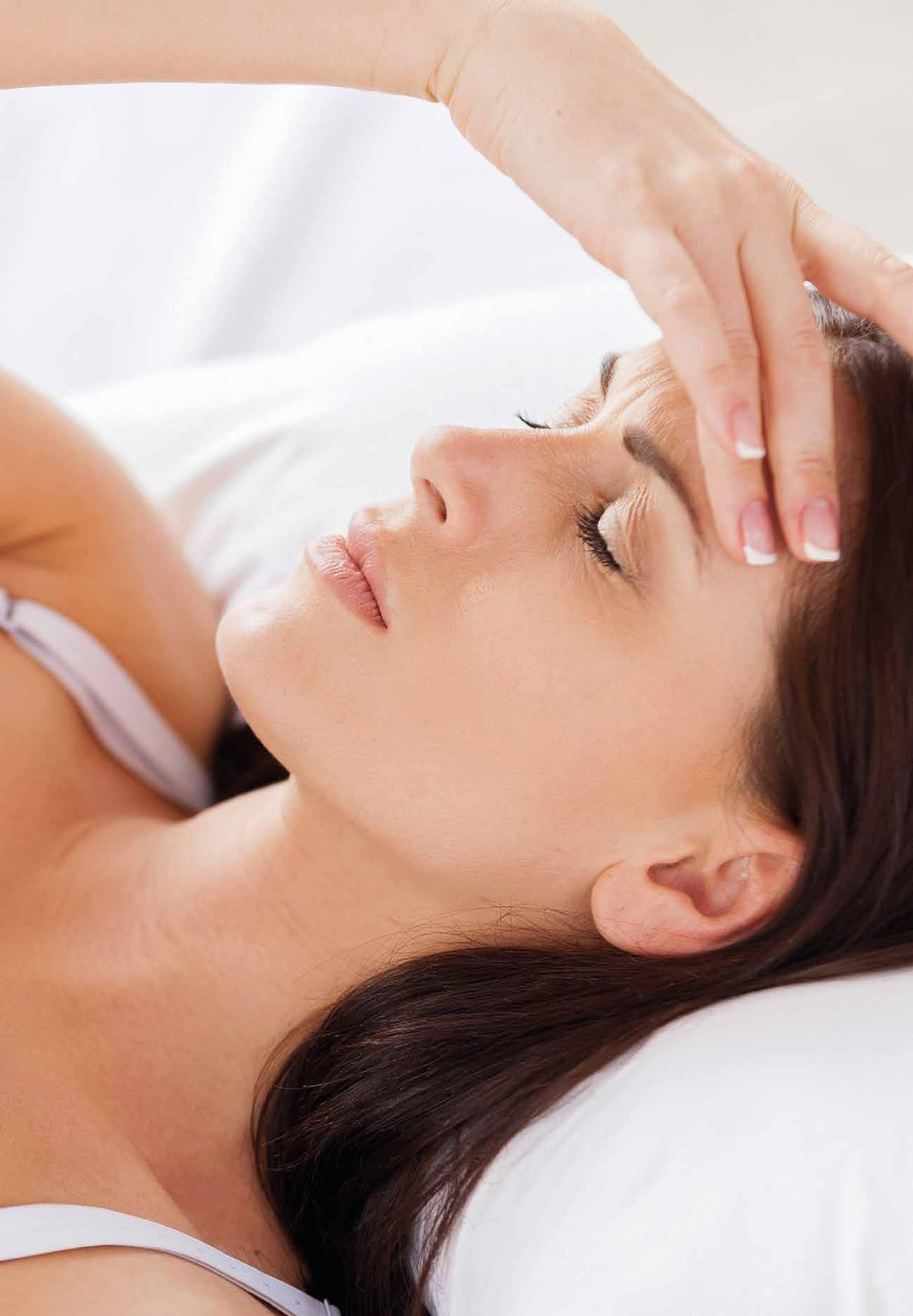Deeper sleep leads to less stress and vice versa, new research shows. These expert strategies will help you chill out, drift off, and feel refreshed and calm every day.


Deeper sleep leads to less stress and vice versa, new research shows. These expert strategies will help you chill out, drift off, and feel refreshed and calm every day.

One night of lousy zzzs, just one night, is all it takes for your stress level to go through the roof, scientists are discovering. “The quality of your shut-eye plays a crucial role in the way you cope with stress,” says Jennifer Martin, a clinical psychologist and behavioral sleep medicine specialist at University of California, Los Angeles. “Lack of sleep affects the brain’s ability to regulate your emotional response to events,” she says. More specifically, after that single bout of tossing and turning, the areas of the brain involved in processing emotions become so hypersensitive that your reaction to something stressful may rocket out of proportion, and cause you to freak out for no reason, according to studies from University of California, Berkeley.
It doesn’t end there as the extra stress makes sleep even more elusive the following night. “Your cortisol levels are elevated and your heart is pumping faster – two things that keep you awake and impair the quality of your rest once you do drift off,” Jennifer says.
In fact, research shows that people who slept just four hours one night had higher levels of cortisol the next night, making it hard for them to get back on track. It’s a classic catch-22: you need sleep to de-stress but are too frazzled to turn in, and the lack of rest makes you even more tense. Break free of the draining cycle with the latest research and expert advice.
WORK OUT AT NIGHT – IT’S FINE
Traditionally, it was believed that exercising too close to bedtime would hype you up, making it harder to nod off. That’s not necessarily true, says Kelly Baron, a sleep expert and an assistant professor in behavioural sciences at Rush University Medical Center in Chicago.
“If it’s best for you to work out in the evening, don’t skip it just because of the time,” Kelly says. “It doesn’t disrupt sleep as much as we once thought.” Plus, research shows that people who go to the gym regularly sleep better than those who don’t. “Exercise is so great for sleep that it’s better to work out late in the day than not at all,” Kelly says.
GET YOUR MINERALS
Over half of adults in the US don’t get enough magnesium in their diets, according to USDA research. That shortfall could create a deficiency and lead to anxiety and insomnia. The mineral plays an important role in the function of the hypothalamic pituitary adrenal (HPA) axis, the body’s main stress response system. When your levels are low, the axis becomes more sensitive and you have a higher risk of becoming anxious and having sleep disturbances.
To stay on an even keel, eat magnesium-rich foods throughout the day to hit the recommended daily target of 310mg to 320mg for women. Try almonds (28g has 77mg), spinach (a cup of boiled spinach has 157mg), soya milk (61mg a cup), and black beans (half a cup of cooked beans contains 60mg). Before bed, snack on 28g of almonds and 28g to 57g of chocolate (up to 41 mg of magnesium) to help make you sleepy.
EAT FOODS WITH PREBIOTICS
Raw garlic, leeks, and onions are packed with prebiotics, a type of fibre that improves your gastrointestinal health and affects brain function in such a way that it becomes easier for you to let go of stress, researchers report in the journal Frontiers in Behavioral Neuroscience.
They found that prebiotics help induce deep, restorative sleep after periods of intense anxiety. The special fibre also protects the body from some of the damage stress can cause, says Monika Fleshner, one of the study’s authors.
Other good sources of prebiotics include raw jicama, dandelion greens, asparagus, and chicory root; the fibre can be found in supplements too.

When time is ticking away and you’re still not asleep, try this quickie stress buster: imagine you’re somewhere relaxing – on a beach with gentle waves rolling in or by a lake surrounded by tall trees, for instance. As you focus on this mental picture, breathe deeply and slowly. Sixty-five per cent of people who tried this strategy for 10 minutes experienced a significant reduction in stress and an improvement in sleep quality. They also took four fewer minutes to drift off, a study at Walter Reed National Military Medical Center found.

GO OFF TRACK
Thanks to the popularity of activity trackers, people are becoming obsessed with getting the perfect night’s sleep – a condition that’s sometimes known as orthosomnia, according to a study at Rush University Medical School. Trouble is, “sleep is one of those things where the more you try to do it, the harder it gets,” says Kelly, the study’s lead researcher.
Putting pressure on yourself to wake up to a superlative reading on your tracker can create a level of anxiety that winds up keeping you awake, she says. Instead, whenever you can, try to arrange your schedule so you can spend about eight hours in bed every night, which should wind up giving you around seven hours of actual sleep. It’s fine to use a tracker to get a general sense of how many hours you’re logging a night, but remember that most devices give only an estimate at best. You may also want to take a break from it after a super stressful day to avoid subconsciously sabotaging your shut-eye.
DON’T FORCE IT
Going to bed earlier isn’t always better. In fact, turning in too prematurely can be another way of unproductively stressing out about your snooze time, Jennifer says. “Trying to fall asleep is a great way to give yourself insomnia,” she says. There’s no one bedtime – or sleep ritual – that works for everyone. Some of us love slipping between the sheets earlier; others would rather stay on the couch until their eyelids droop.
Both ways are fine, as long as you start doing something restful – reading a book, watching something chill on Netflix (with the screen dimmed to minimise your exposure to blue light, which can disrupt your zzzs) – about 30 minutes before you want to be asleep. If you’re not drowsy in that time frame, though, don’t get anxious. The more relaxed you are, the easier it’ll be to eventually drift off.
Turning in too early can trigger stress, making it harder for you to doze off.
THE SLEEP SWEET SPOT FOR WEIGHT LOSS
Logging six to eight hours a night and lowering your tension levels can help you drop kilos, researchers report in the International Journal of Obesity. People who got that amount of sleep and said they felt pretty zen were twice as likely to shed at least 4.5kg than stressed-out participants who got less or more zzzs. Poor sleep and high stress levels can make you crave highcalorie food, the study says. Relaxing and getting proper rest also creates a positive cycle: As the volunteers lost weight, they said they felt calmer overall, which in turn improved their sleep.
PHOTOS TPG IMAGES, 123RF.COM























